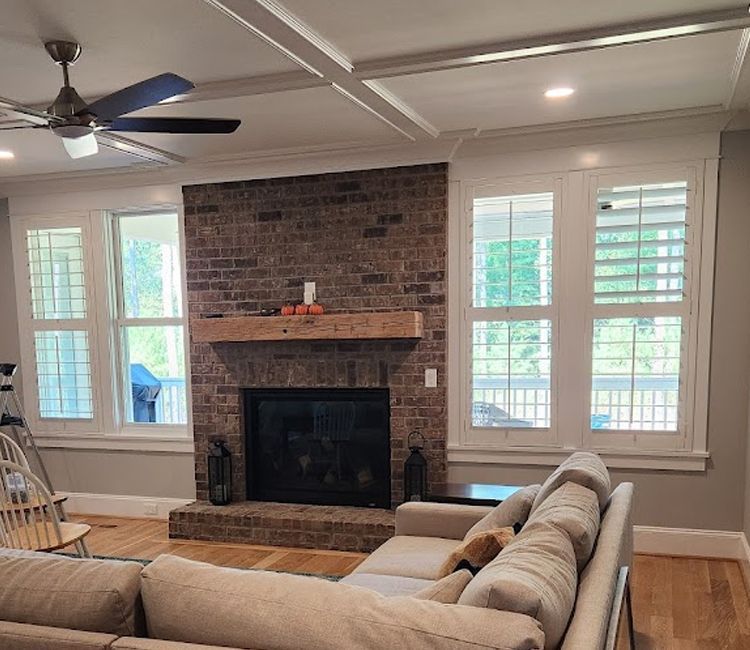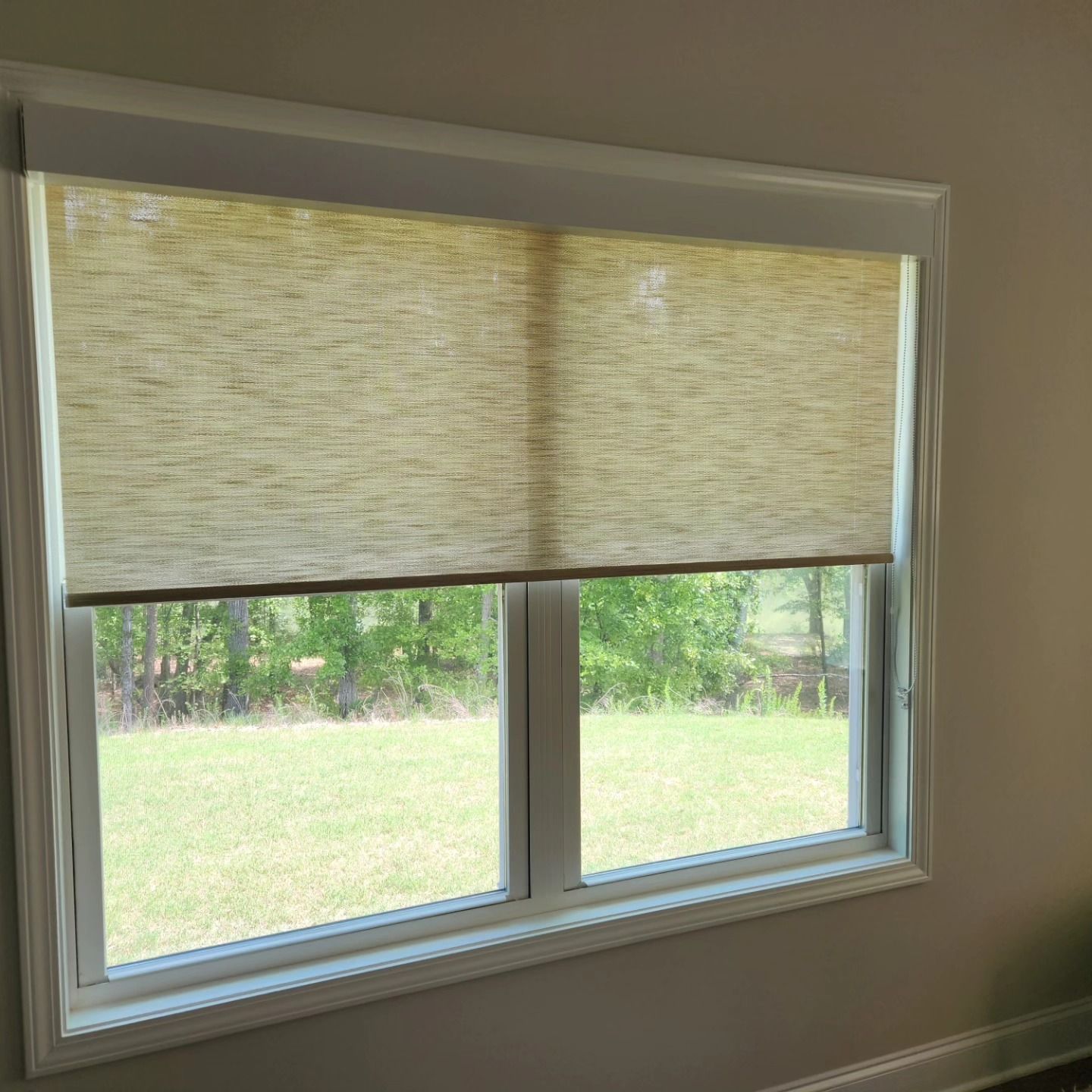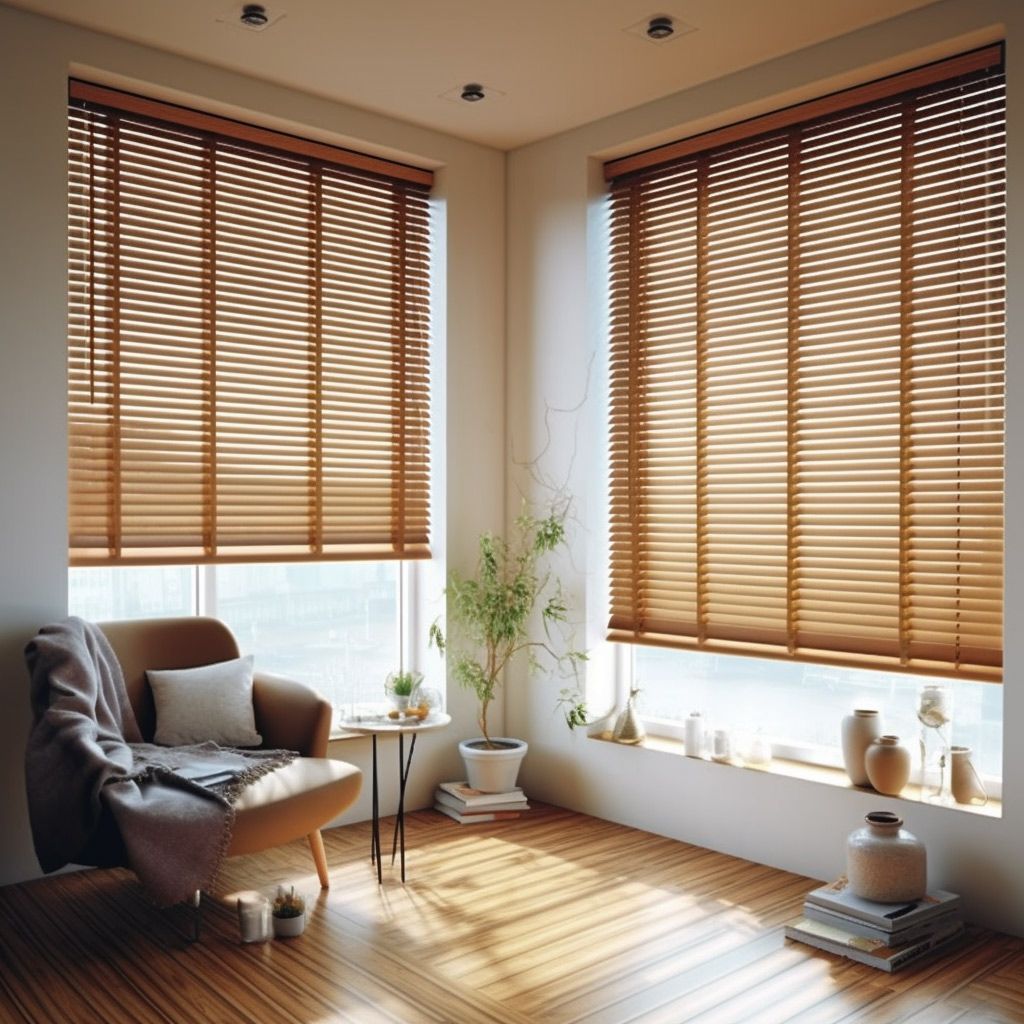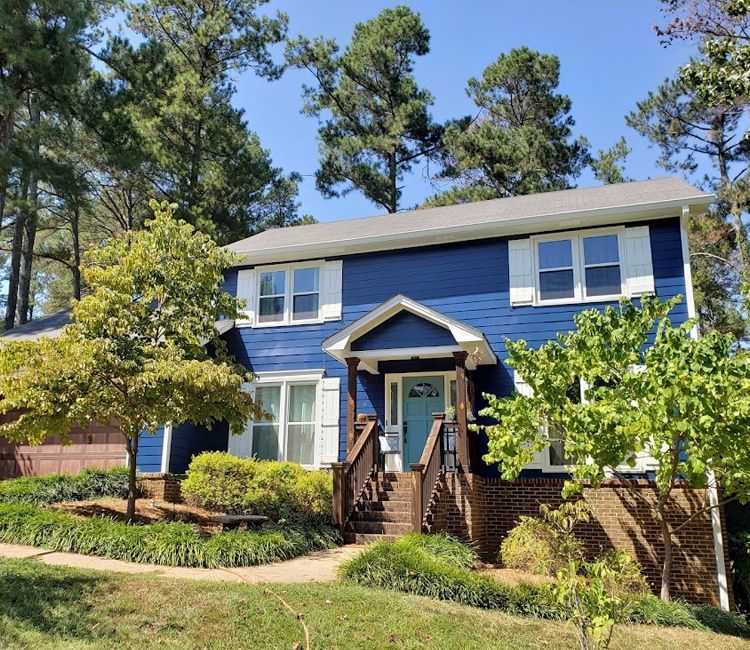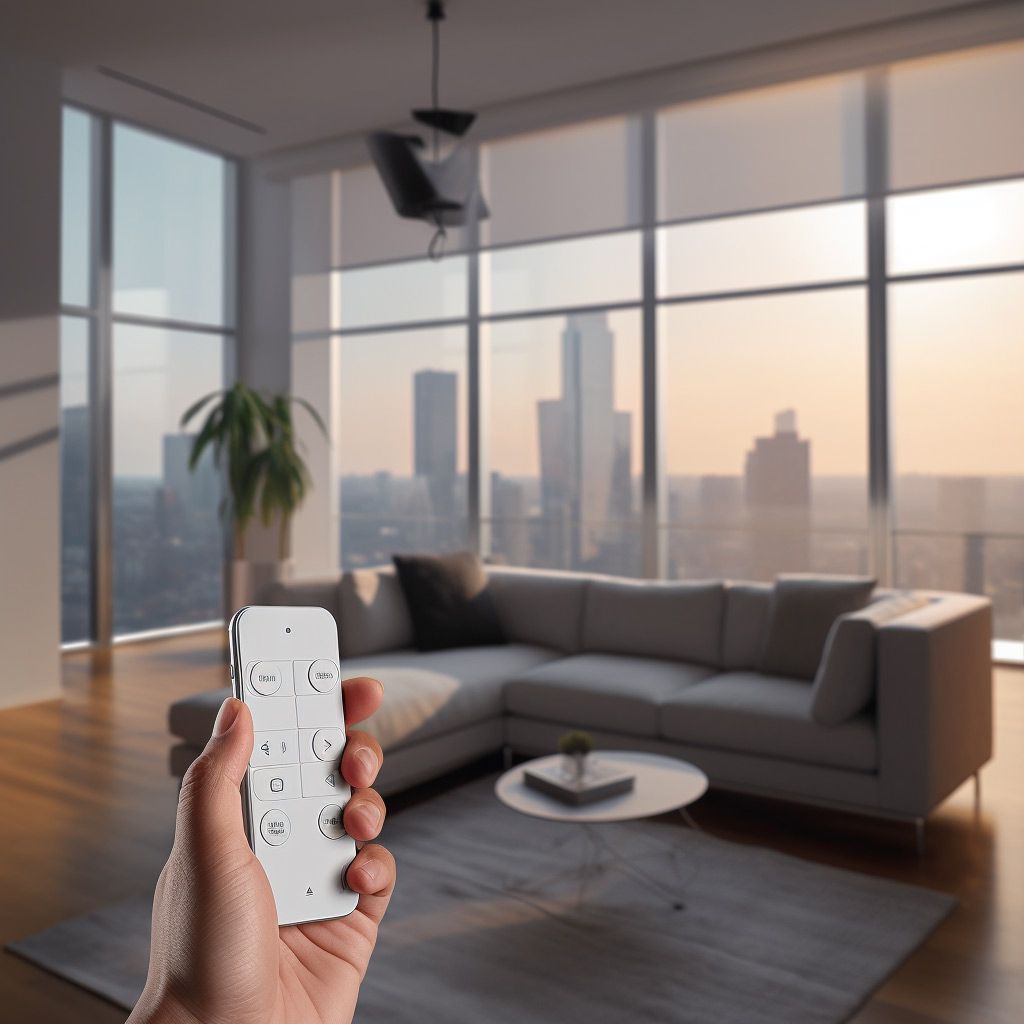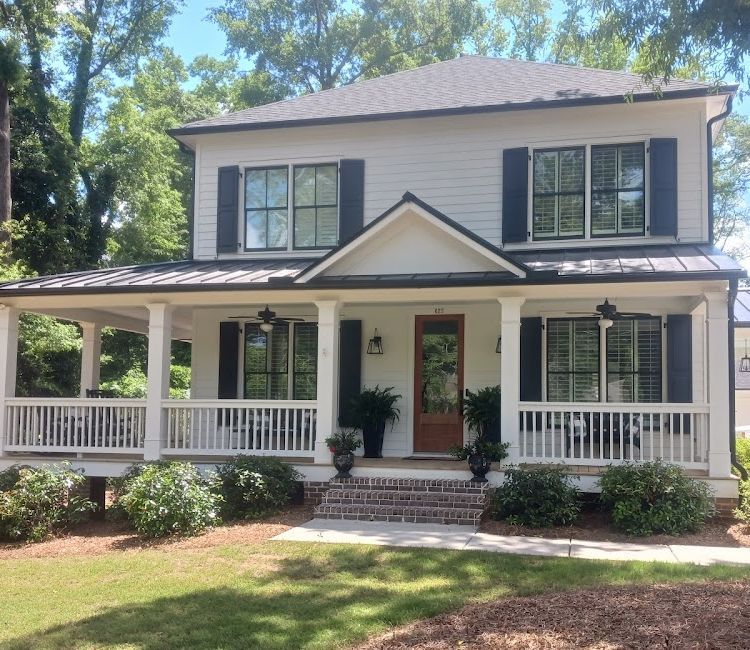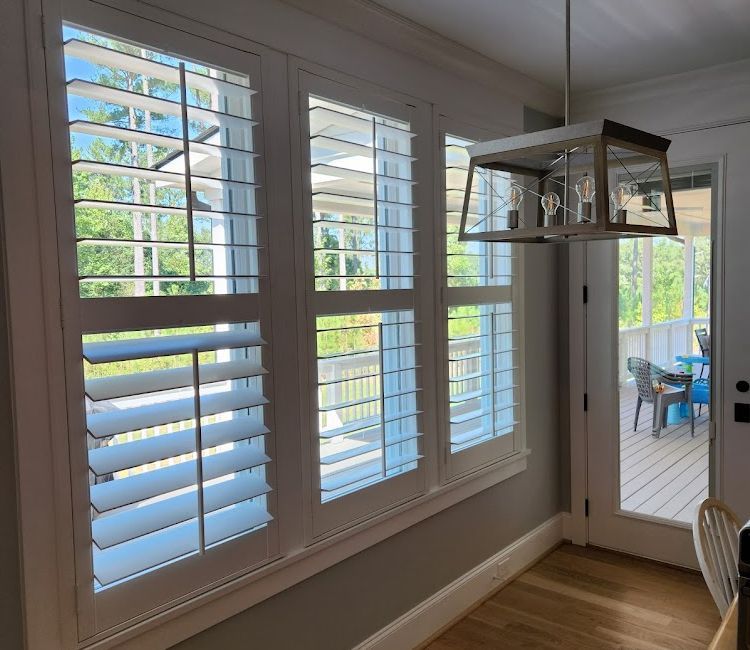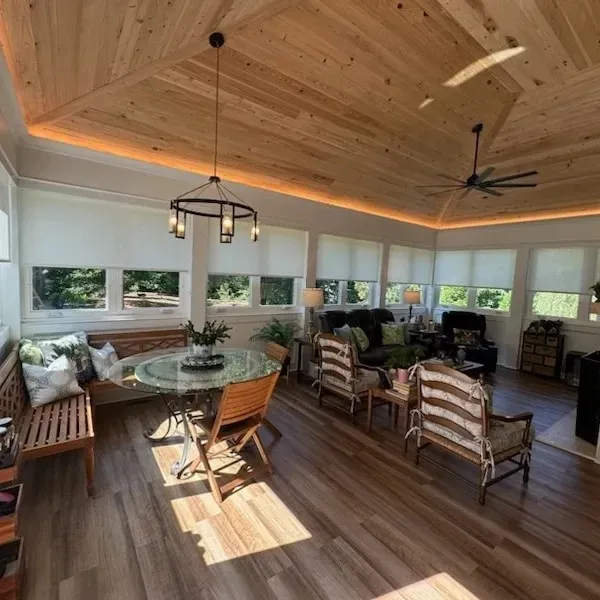The Best Window Coverings for Energy Efficiency in Athens, GA Homes
Keeping your home comfortable year-round in Athens, Georgia, means more than just running your HVAC system—it starts with your windows. In our humid summers and mild winters, energy-efficient window coverings can make a noticeable difference in how your home feels and how much you spend on utilities.
Window treatments
do more than add style or privacy—they’re an important layer of insulation. By blocking heat in the summer and retaining warmth in the winter, the right blinds, shades, or shutters can significantly improve energy efficiency.
In this guide, we’ll explore the best window coverings for energy efficiency in Athens homes, explain how they work, and help you choose the right options for your home’s design, climate, and lifestyle.
Why Energy-Efficient Window Coverings Matter
Windows are responsible for up to 30% of a home’s heating and cooling energy loss. In Georgia, where sunlight and humidity are constant factors, untreated windows can make it harder to keep your home cool and comfortable.
Energy-efficient window treatments act as a barrier between your home’s interior and the outdoor environment. They:
- Reduce heat gain during hot summer months
- Prevent warmth from escaping during cooler weather
- Minimize glare and UV exposure that can fade furniture and flooring
- Lower energy bills by reducing strain on HVAC systems
For homeowners in Athens, these benefits translate to better comfort, lower costs, and a more sustainable home.
The Best Window Coverings for Energy Efficiency
When selecting window treatments, material and design matter most. The following are the top energy-efficient options suited to Georgia’s climate and Southern home styles.
Plantation Shutters
Plantation shutters are one of the most effective and timeless solutions for insulation. Because they’re custom-fitted within your window frames, they create a tight seal that limits air leakage.
Why they work:
The solid material acts as a thermal barrier, helping keep heat out during summer and locking it in during winter. Composite or wood shutters also provide excellent durability and light control.
Best for:
Living rooms, dining areas, and street-facing windows where both aesthetics and performance matter.
Added benefit:
They boost home value while maintaining a classic Southern look that complements Athens architecture.
Cellular (Honeycomb) Shades
Cellular shades are designed specifically for energy efficiency. Their honeycomb structure traps air within small pockets, creating an insulating layer that regulates temperature.
Why they work:
These air pockets act as natural insulators, reducing heat transfer between your windows and the rest of your home. The more layers (or “cells”) in the shade, the greater the insulation.
Best for:
Bedrooms, offices, or any room that experiences direct sunlight.
Added benefit:
Available in both light-filtering and blackout options, so you can control natural light without sacrificing efficiency.
Roman Shades
Roman shades combine the elegance of drapery with the practicality of shades. When made from heavier fabrics or lined with insulating materials, they help block drafts and reduce temperature fluctuations.
Why they work:
Their layered design helps retain warmth during winter while shielding against solar heat gain in summer.
Best for:
Formal spaces like dining rooms or home offices where design and comfort both matter.
Added benefit:
They offer endless customization options in fabric, color, and texture.
Roller and Solar Shades
These sleek, modern shades are perfect for Georgia’s sunny climate. Roller shades provide simple light control, while solar shades are designed to block UV rays and reduce glare without sacrificing your view.
Why they work:
Solar shades reduce solar heat gain, keeping interiors cooler. They can block up to 99% of harmful UV rays depending on their openness factor (the density of the weave).
Best for:
Sunrooms, living rooms, and kitchens with lots of natural light.
Added benefit:
They protect furnishings from fading and can be motorized for convenience.
Drapes and Curtains with Thermal Linings
While traditional drapes alone don’t offer significant insulation, pairing them with thermal linings turns them into an effective energy-saving solution.
Why they work:
The lining creates a thicker barrier between your windows and indoor air, reducing drafts and heat transfer. Layered drapes also help absorb sound, making your home quieter.
Best for:
Bedrooms and living areas where soft textures and temperature control are both priorities.
Added benefit:
They can be paired with blinds or shades for maximum efficiency and a designer look.
Faux Wood Blinds
Faux wood blinds mimic the warmth of real wood but perform better in humid climates like Athens. Their dense, moisture-resistant material helps reduce heat transfer while standing up to humidity.
Why they work:
When fully closed, faux wood blinds create an insulating layer that blocks sunlight and traps indoor air.
Best for:
Kitchens, bathrooms, or any space exposed to heat and moisture.
Added benefit:
They’re affordable, durable, and easy to maintain.
How to Maximize Energy Efficiency with Window Treatments
Choosing the right product is only part of the solution. To get the most from your window coverings, consider these simple strategies.
1. Layer Your Treatments
Combine shutters or blinds with drapes or thermal curtains for added insulation. The extra layer enhances performance while adding visual depth to your design.
2. Use Automation or Scheduling
Motorized shades and blinds can be programmed to open and close at optimal times—lowering blinds during the heat of the day or opening them to capture morning warmth.
3. Choose Lighter Colors for Sun-Exposed Areas
Light-colored shades and shutters reflect sunlight instead of absorbing it, helping to maintain cooler indoor temperatures.
4. Ensure Proper Fit and Installation
Even the most energy-efficient product won’t perform well if it doesn’t fit correctly. Custom measurements and professional installation ensure minimal air leakage and maximum comfort.
5. Consider Orientation and Window Placement
South- and west-facing windows get the most sun exposure in Georgia. Prioritize energy-efficient treatments in these areas for the best results.
FAQs
Do energy-efficient window coverings really reduce energy bills?
Yes. By reducing heat transfer and air leakage, they ease the workload on your HVAC system, leading to noticeable energy savings over time.
Are plantation shutters energy efficient?
Absolutely. Their tight fit and solid materials make them one of the best options for insulation and light control.
What’s the most energy-efficient shade design?
Cellular (honeycomb) shades are the top choice for energy efficiency due to their air-trapping design.
Can I make my existing window treatments more energy efficient?
Yes. Adding thermal liners, layering with drapes, or sealing gaps around the frame can significantly improve performance.
Do motorized blinds improve efficiency?
They can. Automation ensures your blinds adjust throughout the day, optimizing light and temperature without manual effort.
Conclusion
Energy-efficient window coverings aren’t just about comfort—they’re about creating a smarter, more sustainable home. For Athens homeowners, investing in plantation shutters, cellular shades, or insulated blinds can dramatically improve interior comfort while lowering energy costs year-round.
Whether you’re building a new home or upgrading an existing one,
Southern Shutters & Blinds offers custom solutions designed for Georgia’s unique climate. From expert measurement to professional installation, their team ensures every detail helps your home look beautiful and perform efficiently.

